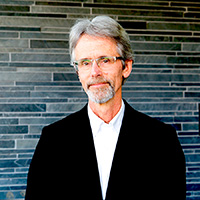 John Kenneth Nelson passed away unexpectedly on Dec. 18, 2023 in Eugene, Oregon. He was 70 years old. Born in Little River, Kansas, John was a cultural anthropologist of East Asian religions. He received his PhD in sociocultural anthropology from the University of California, Berkeley in 1993, MA in English literature from California State University, Chico in 1983, and BA in English from the University of Kansas, Lawrence in 1975.
John Kenneth Nelson passed away unexpectedly on Dec. 18, 2023 in Eugene, Oregon. He was 70 years old. Born in Little River, Kansas, John was a cultural anthropologist of East Asian religions. He received his PhD in sociocultural anthropology from the University of California, Berkeley in 1993, MA in English literature from California State University, Chico in 1983, and BA in English from the University of Kansas, Lawrence in 1975.
In 2020, John retired as professor emeritus of East Asian religions at the University of San Francisco after 20 years as a faculty member in the Department of Theology and Religious Studies. He and his wife, Miko, resided in the East Bay, in Albany. An inspiring and energetic teacher, John taught undergraduate and graduate courses on Religion and Globalization, Japanese Religions, Buddhist Paths in Asia and North America, Sacred Place and Space, Comparative Spirituality, Religion and Philosophy in Asia, and other topics in religious studies. From 2014 to 2020, John served as academic director of USF’s Graduate Program in Asia Pacific Studies, having been previously the interim executive director of the Center for the Pacific Rim (2011–2012), founding director of the university’s Asian Studies degree program, (2004–2010), and department chair of Theology and Religious Studies (2010-2012). John was also a frequent lecturer for San Francisco Society for Asian Art programs. Prior to his appointment at USF, John taught from 1994-1999 in the Department of Asian Studies at the University of Texas, Austin, where he received tenure, and in 1993-94 was visiting assistant professor in the Department of Religion at the University of Puget Sound, Washington.
John’s scholarship examined interactions between religion and politics in East Asia, notably in his pathbreaking studies of Shintō and the modern Japanese state. He was also a keen researcher of global religion and social change, as vividly evident in his writings on contemporary Buddhist temple, diasporic, and convert communities. John’s interactions with religious institutions and communities were distinguished by his great respect and care, yet he insistently sought to understand their complex histories and lived realities with deep acknowledgement of uneven, often difficult social changes and their impacts on religious life and with commitment to the search for freedom and social justice. A photographer and filmmaker, John’s field research included meticulous visual documentation of religious communities, sites, material culture, and ritual.
John published three, widely reviewed academic books: Experimental Buddhism: Innovation and Activism in Contemporary Japan (2013); Enduring Identities: The Guise of Shinto in Contemporary Japan (2000); and A Year in the Life of a Shinto Shrine (1996). With Experimental Buddhism—which received the 2014 Toshihide Numata Book Award (for an outstanding book in Buddhist studies)—and his subsequent publications, John gives us the opportunity to hear directly from Buddhist clergy in Japan about how they see the problems facing Buddhism in postmodern Japanese society and the kinds of solutions that Buddhist professionals need to take in their roles as leaders. John’s mixture of brutal honesty in his scholarship and attention to creative responsibility is uplifting both for Buddhist leaders and scholars, communicating as it does a reassuring sense of purpose and hope that can only come from facing reality as it is.
John also produced, directed, and wrote the film Spirits of the State: Japan's Yasukuni Shrine (2005), and was the co-editor, with Inken Prohl, of The Handbook of Contemporary Japanese Religions (2012). He was also the author of more than 30 articles, book chapters, entries, and book reviews appearing in the Journal of Religion, Religions, Journal of Asian Studies, Journal of Global Buddhism, Japanese Journal of Religions Studies, Handbook of Contemporary Buddhism, Encyclopedia of Religion and War, Encyclopedia of Religious Freedom, Tricycle Magazine, and elsewhere. John’s most recent publication, “Japan’s ‘Priests’ Bars’: ‘Bad Buddhism’ or Hope for the Future?” Journal of Global Buddhism (2020), exemplifies his on-the-ground inquiry and compassionate engagement with religious practices and values in a changing world. Internationally active as a lecturer, John was also interviewed frequently as a Japan-area expert by the media in Japan and the U.S., notably following the 2011 Japanese tsunami/earthquake/nuclear meltdown.
John lived and taught in Japan for many years and traveled extensively in Asia, Europe, and North America, eventually retiring in Eugene, Oregon. Active in community organizations, he was an avid guitarist, zazen practitioner, talented poet, photographer, and backpacker in the mountains of California and Pacific Northwest. John is survived by his wife, Miko, and son, Max.